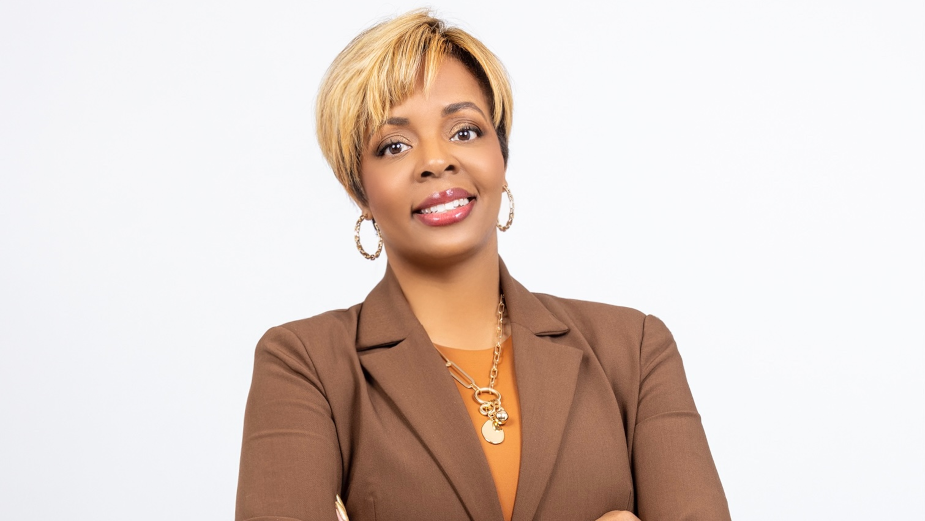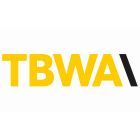
DE&I: Accelerating Change with Jennifer L. Payne

Diversity, equity and inclusion has become a paradox. Look at events and panels and it would appear to be top of the industry agenda, yet the pace of change is glacial and in some dimensions it’s going backwards. We want to interview the industry’s DE&I leads to find out about their perspective and how the wider industry can take responsibility for transforming the industry for the better.
Jennifer L. Payne is a DEIA practitioner, communications consultant, and author with a collective 25+ years of experience in non-profit management, DEI, human resources, and communications. As DEIA Lead at TBWA\Chiat\Day LA, Jennifer utilises her diverse background to help her be a more progressive and empathetic advocate and ally within the DEI space. She has a passion for the betterment of society and humanity and prides herself on being a champion of people.
TBWA\Chiat\Day LA’s DEI&A lead, Jennifer L. Payne takes a look a the industry.
Q> What drew you to the field of DE&I?
Jennifer> Over 20 years ago, I started my career in human resources, in which I consider the 'people station' and nucleus of any company. During my tenure in HR, I learned so much about people, consideration of differences, and the importance of diversity – for me, it was a natural transition into DE&I.
Q> Before it became your job role, what was your specialism? And how did you get involved?
Jennifer> I have an eclectic background comprising of HR, PR/communications, education, and non-profit management. But HR is where my career began; it became my specialty. I landed into HR by accident. Right before the start of my career, I was pursuing opportunities in journalism, interning for a local news station in Michigan, and during that time, internships were free. Around the same time, I was informed of a part-time HR opportunity with General Motors Acceptance Corporation that paid $15.00 per hour. I interviewed and of course was offered the position. Twenty-three years ago, I thought I hit 'big time' money. That was the end of me becoming this amazingly talented on-air personality and the beginning of my career in HR.
Q> There’s a lot of frustration around the industry’s glacial pace when it comes to improving DE&I across all sorts of axes. What’s getting in the way?
Jennifer> There are a few obstacles, but I’ll point out two: DE&I must be authentically embraced, supported, and actionized from the top levels of any agency. Employees look to leadership for guidance. If leadership isn't actively involved, initiatives and efforts fail. There are systemic biases, processes and 'comforts' that must be broken. For example, across the industry, when I look at production, a lot of talented people of colour (in particular Black people) are not given opportunities due to the decision maker’s comfort-level on being with a person(s) they’re used to working with – typically, a non-person of colour; it limits opportunities for the underrepresented to showcase their abilities and advance. There’s been some progress, but we have a long way to go!
Q> Outside of the advertising industry, where do you see examples of large-scale meaningful progress (if at all), and what should our industry learn from it?
Jennifer> I’ve seen meaningful progress, but not on a large scale. There’s been progress in this space, but we have a long way to go, in all industries, as a society.
Q> The dimensions of DE&I can differ somewhat according to geographic/cultural context - I’m curious, where you’re based, what are the big issues or most urgent elements of DE&I that you need to address? (And if your role covers more than one market/territory, how do you and your team navigate the local nuances while having a cohesive and consistent set of values?)
Jennifer> I’m based in Los Angeles. The most urgent elements of DE&I that continuously need to be addressed are training and basic cultural competency. I live and work in a state that’s one of largest 'melting pots' in the United States. We have people migrating to California from all over the world - from different cultures, backgrounds, speaking hundreds of different languages, and of course different races. Effective DEI training and just basic cultural competency are essential to the workplace culture, increased productivity and growth. The world is ever-changing; therefore, DEI is constantly evolving. Just like we continuously train and educate in skill sets, DEI must be treated the same. There must be constant reminders and continuous education. The more we understand and accept one another, the more systemic issues we can tackle and progress as a society.
Q> In your role, what have been some of the most meaningful projects or policies you’ve been involved in regarding DE&I?
Jennifer> The most meaningful projects I’ve been involved in are the DEI trainings in which people walk away clapping and teary-eyed from fulfilment and understanding. Diversity in recruiting - over the last two years, our recruiting team has increased our growth in diverse hiring by double-digits. And this diversity is reflected across all levels, not just junior, with significant representation across the executive and senior leadership. We've seen our leadership consistently measure our DEI progress and reports against tangible metrics. When I first saw the numbers, the progress made, that brought meaning and purpose – something tangible.
Q> What role are clients playing in holding agencies accountable and driving better DE&I (e.g. via RFPs)? Is this something you are seeing or would like to see more of?
Jennifer> Clients are definitely holding our feet to the fire during the RFP process and a lot of clients have us complete annual reports on our DEI progress. I love to see the questions on RFPs and the reports I’m asked to complete. Accountability is key. We all need to continue holding each other accountable.
Q> We often see DE&I siloed or pigeonholed as an HR issue - what’s the key to ensure that it’s embraced as an agency-wide or industry-wide responsibility?
Jennifer> DE&I is not an HR issue. DE&I is a people issue. It’s everyone’s issue. Both agency-wide and industry-wide, DE&I must be embraced and actionized from the top. Leadership must make it a priority and hold accountability. Once people understand that DE&I requires all hands on deck and for DE&I to be baked into processes and not just another box to check, that’s when we’ll start to see large-scale meaningful progress.
Q> What are your thoughts about where accessibility fits in the DE&I agenda?
Jennifer> Unfortunately, the disabled community is oftentimes overlooked and forgotten due to the 'unseen'. There are so many people with unseen disabilities, especially regarding mental health, until 'accessibility' has become crucial. In November 2021, I changed my title from DE&I Lead to DEI&A Lead. It was important that I recognise all facets of the disabled community and to do my best in letting them know that we (agency) are here for them and will do everything we can to accommodate – it started with the simplicity of a title change.
Q> Covid-19 changed things up across the industry. On the one hand it opened up remote working opening up opportunities to those who can’t afford city living, but on the other hand it’s had a notably negative impact on other groups, notably mothers. Now that some time has passed since the extremes of lockdowns in most territories, what’s your assessment of the positives and negatives to come out of that time of disruption?
Jennifer> Positives: People were given much-needed time bonding with their children – time with family. A lot of employers realised that remote work provided a work-life balance that yielded higher productivity due to a decrease in stressful travel to and from work, better time-management, and decreased interactions of microaggressions.
Negatives: During that time of lockdown, while a lot of people gained quality time with family, there were also a lot of people who were isolated, lonely, and depressed, yielding a decrease in productivity. Fast-forwarding to now, post-lockdown it has become increasingly difficult for a lot of people to go back into an office full-time for a myriad of reasons. It’s forcing employers to become more flexible and creative with employee engagement and in-office cultural activities – trying to provide employees with a 'safe,' welcoming, engaging, and enriching workplace culture. It’s been rough for both the employer and employee. Both remain in a constant state of pivot, but I believe or at least I hope, it’ll all soon stabilise.
Q> What resources/platforms/programmes have you found useful on your DE&I journey and would recommend to our readers?
Jennifer> Ooooh! I’m an author, so I love to read. But here are just a few books that have really helped me along my DEI journey to change my mindset, give grace, and do my best to first assume positive intentions: The Gift of Forgiveness by Katherine Schwarzenegger Pratt, Love Works by Joel Manby, No Rules Rules Netflix and the Culture of Reinvention by Reed Hastings and Erin Meyer, and The Leader’s Guide to Unconscious Bias by Pamela Fuller and Mark Murphy.
Q> The scale of the change needed is so massive that individuals can often feel powerless without the levers to move huge structures. What's a more personal act of positivity that you've seen recently that others could look to as inspiration for change on a human scale?
Jennifer> During this year’s Buffalo Bills and Cincinnati Bengals game, Bill’s Damar Hamlin suffered cardiac arrest live on the field. I didn’t know who he was. I had never heard of Damar until that day. But what I did know is as the year 2022 came to an end, I was unsure of the world we live in - losing hope in mankind’s ability to just be decent human beings. The last three years have been unprecedented and filled with perpetual hate.
But that day and several days after, there was a slight shift in the universe. The outpour of love, support and prayers for Damar, from complete strangers, was so heart warming and moving. People from all around the world, from different races, backgrounds, religions, ethnicities, it didn’t matter - they stopped, prayed, donated, and sent their blessings and well-wishes for his recovery. It was such an inspiration and a glimpse of hope for humanity.
In watching it all unfold, only one quote came to mind: “No one is born hating another person because of the colour of his skin, or his background, or his religion. People must learn to hate, and if they can learn to hate, they can be taught to love, for love comes more naturally to the human heart than its opposite.” ~ Nelson Mandela
Q> If you’d like our readers to take one thing away from this interview what would it be?
Jennifer> To all my DEI practitioners, allies, and advocates, breathe and take one day at a time. Give yourself grace and the leverage to grow in this space. And by all means, if you need a moment to take it all in and decompress, take the time, give yourself a moment. Your mental health requires it!













